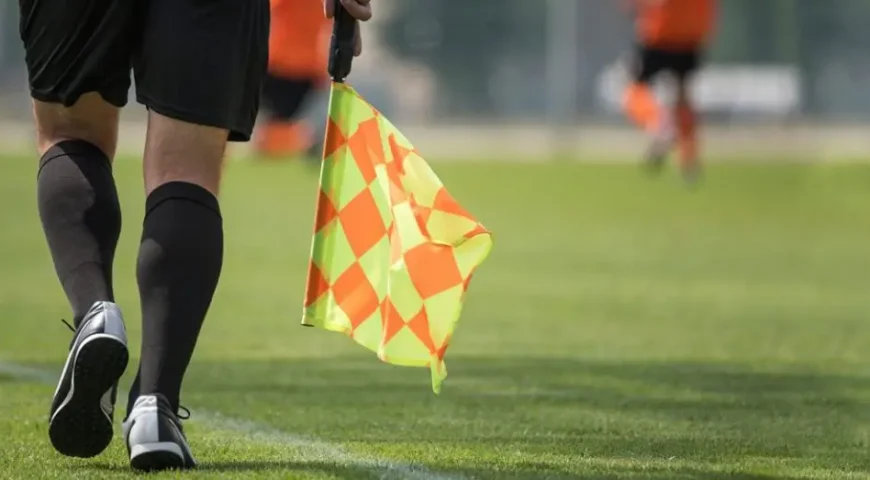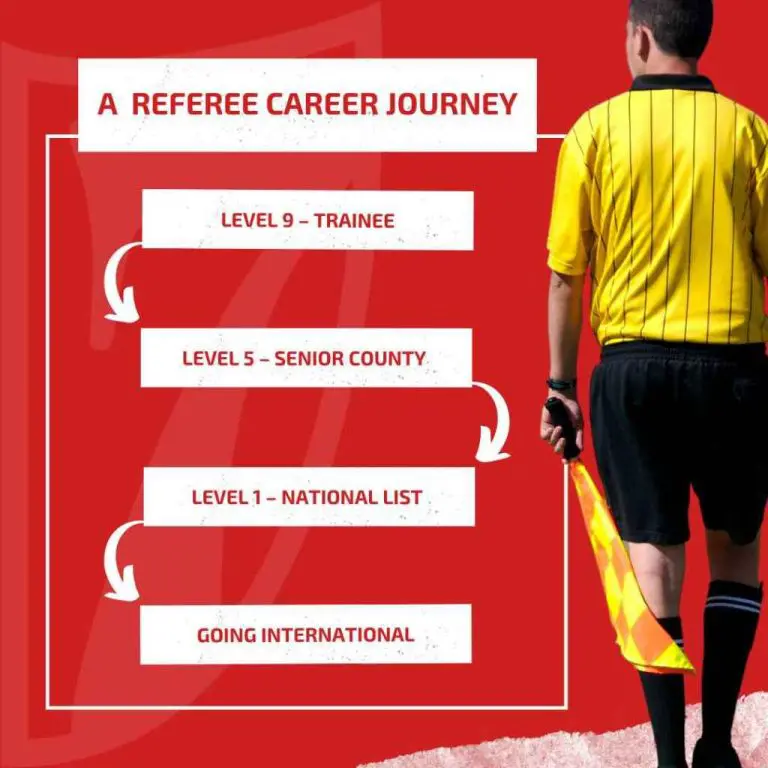
Want to be in the middle of football as an official?
Referees. They’re the people who make the decisions, dish out the cards and yes, take the abuse.
But without them, football games just wouldn’t happen. Referees are the independent lifeblood of our game and yes, they should be cherished.
For some years there’s been a shortage of match officials (including those run the lines) so if there’s ever been a time to get involved, now is it.
So how do you get to the stage where you’re ready to collect cards, a whistle and a rather nifty black uniform?

First of all, watch a few games. If you’re considering becoming a referee, then you’ve probably already done that. Take a look at how the officials carry themselves before the game, during the game and even afterwards.
Take note of how they talk to coaches and players, and of course how they respond to comments from spectators. Respect is a key tool
If you haven’t been put off yet, contact your local County Football Association. They will have a dedicated Referee Development team, who can explain the steps involved in more detail.
That will involve a Referee Training Course run by the Football Association. It covers every single aspect of becoming an official, including:
Before the Match, Signals and Communication, ‘Getting it Right’, Offside, Managing Restarts and Set-Pieces, Face to Face Training, Refereeing Games.
Final qualification to be a referee includes taking charge of your first games – five, in fact. Your local FA with support you during those games and in fact, throughout your career.
But what could that career look like? Before you get your boots out and become the next Pierluigi Collina, there will be a few steps to go. These steps often change, but as a broad guide will include:
Level 1 – National List (English Football League and English PL)
Level 2a – Panel Select (National League Premier)
Level 2b – Panel (National League North and South)
Level 3 – Contributory (Contributory Leagues)
Level 4 – Supply (Supply Leagues)
Level 5 – Senior County (County Leagues)
Level 6 – County (County leagues)
Level 7 – Junior (Amateur leagues)
Level 8 – Youth (Junior Referee below age of 16)
Level 9 – Trainee
After that, you might get a shot at international games. But you know what? It isn’t all about being the star of the show. In fact, that isn’t the point at all.
You’ll be a crucial part of the game we all love. Decisions, cards and everything else in between.
For more information, the Football Association has lots of advice: https://www.thefa.com/get-involved/referee/general-information/the-fa-referee-training-course


